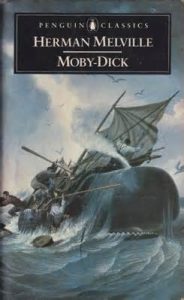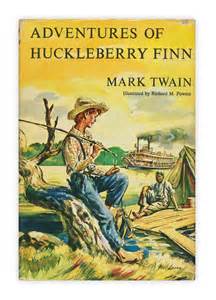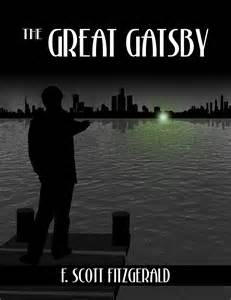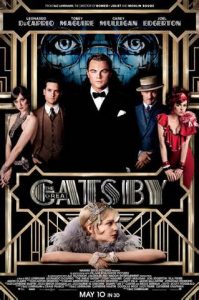In 1868, after a grueling Civil War that defined America (by almost destroying it), novelist and critic  John DeForest wrote a piece for The Nation magazine titled, “The Great American Novel.” Surveying the literary field of the time, he could find no likely candidate for such a title. Washington Irving was too cautious, James Fenimore Cooper too boring, Nathaniel Hawthorne, far and away the most gifted, was too artsy and high-minded. The great American novelist must at least have a brotherly bond with “this eager and laborious people, which takes so many newspapers, builds so many railroads, does the most business on a given capital, wages the biggest war in proportion to its population, believes in the physically impossible and does some of it.” No novels quite fit these criteria, though Uncle Tom’s Cabin came close. Sadly, DeForest concluded that the American public would just have to wait for their definitive fictional treatment.
John DeForest wrote a piece for The Nation magazine titled, “The Great American Novel.” Surveying the literary field of the time, he could find no likely candidate for such a title. Washington Irving was too cautious, James Fenimore Cooper too boring, Nathaniel Hawthorne, far and away the most gifted, was too artsy and high-minded. The great American novelist must at least have a brotherly bond with “this eager and laborious people, which takes so many newspapers, builds so many railroads, does the most business on a given capital, wages the biggest war in proportion to its population, believes in the physically impossible and does some of it.” No novels quite fit these criteria, though Uncle Tom’s Cabin came close. Sadly, DeForest concluded that the American public would just have to wait for their definitive fictional treatment.
One contender was right under his nose: Moby-Dick, published in 1851. But Melville’s masterpiece was way ahead of its time and would have to wait until the 20th century to be appreciated. The only other 19th-century novel that regularly shows up on Great American lists is The Adventures of Huckleberry Finn, published in 1881.  Ernest Hemmingway famously said that American literature began with Huck Finn, and I’m inclined to agree with him. But I probably wouldn’t stamp it with the Great American label.
Ernest Hemmingway famously said that American literature began with Huck Finn, and I’m inclined to agree with him. But I probably wouldn’t stamp it with the Great American label.
Late last winter, Publishers Weekly polled readers on their choice for GAN. What qualities should a candidate for the title have? First and obviously, it should succeed as a work of fiction—compelling plot, memorable characters, evocative setting, striking literary style. It should also be accessible to the general public, in that it doesn’t require a dictionary or a course in literary interpretation to read. But most crucially, it should be American, meaning energetic, driven, paradoxical, and often frustrated (sometimes disillusioned). For my money, the novel that meets all those criteria came in second in the Publishers Weekly poll: The Great Gatsby.
With the latest movie version racking up box-office sales, book sales are bound to rise as well. I recommend it—the book, not the movie–to the point of believing no high school American literature course is complete without it. For literary virtue, it strikes me as the most  perfectly written novel I’ve ever read: hardly a word out of place or a simile unfit. The language is often beautiful but not excessive (okay, maybe sometimes), the detail is exacting and the settings superb. Sure, it’s loaded with symbolism but you can forget that and get caught up in the flow, and let the symbols work subconsciously like they’re supposed to.
perfectly written novel I’ve ever read: hardly a word out of place or a simile unfit. The language is often beautiful but not excessive (okay, maybe sometimes), the detail is exacting and the settings superb. Sure, it’s loaded with symbolism but you can forget that and get caught up in the flow, and let the symbols work subconsciously like they’re supposed to.
Some readers complain that the plot is thin, but for a short novel (about 200 pages), you don’t expect a multi-generational saga. Here’s the story: When we meet him, Jay Gatsby has taken advantage of Prohibition to make a fortune in shady trades. He owns a mansion in the fashionable East Egg neighborhood outside New York City, drives a sporty roadster, flies a plane, and throws legendary parties–all for the chance of re-connecting with Daisy Buchanan, the girl he loved and lost in faraway Louisville. Daisy now happens to live across the bay from him, but unfortunately she’s married to Tom, a rich and callous philanderer. Gatsby sees her marriage vows as no obstacle at all—and, after they finally meet, neither does Daisy. But history, circumstances, Tom’s will, and “reality” itself prove to be too much for Gatsby’s fragile dream, and their story ends in tragedy.
Almost all the characters ring true to me–not that I’ve met them but I know I could someday— with the exception of Gatsby himself. But then, he’s supposed to be an enigma, the novel’s thematic machinery; pure theme, in fact. As for setting, no novel is said to bring to life the roaring decade better than this one—if your view of the twenties is all flappers and jazz. It’s the perfect decade for this story, a period of furious acquisition, explosive energy, rising hemlines and falling morals.
with the exception of Gatsby himself. But then, he’s supposed to be an enigma, the novel’s thematic machinery; pure theme, in fact. As for setting, no novel is said to bring to life the roaring decade better than this one—if your view of the twenties is all flappers and jazz. It’s the perfect decade for this story, a period of furious acquisition, explosive energy, rising hemlines and falling morals.
It’s not a Christian novel by any means, but Christians are edified by truth wherever it’s found (as long as it doesn’t come wrapped in sleaze). Here’s what I find in Gatsby:
- “Follow your dream” isn’t always wise advice. Our protagonist is a champion dreamer, and he possesses the gifts and the drive to push the accoutrements of his dream in place, but the linchpin eludes him. Fitzgerald suggests his doom was settled when he fixed upon Daisy and forever wed his unutterable visions to her perishable breath . . . As soon as Gatsby determined that his real goal in life was a being of “perishable breath,” he was bound to be disappointed, because no earthly object could fill the God-shaped space within him. He should have listened to Augustine: “Our hearts are restless until they rest in thee.”
- Too desire is human, and so is the misappropriation of that desire. One thing I love about this novel is that you can tell exactly when the climax comes: it’s when Daisy turns to Gatsby in an over-heated, emotionally-charged hotel room and cries, “Oh, you want too much!” He wants to erase certain events of the past in order to re-shape the present, and don’t we all? We want too much. Most of us are “realistic” enough to know that you can’t change the past, but the very rich can deceive themselves. Are they ever satisfied? No one is, outside of Christ.
- America is not the last best hope of earth. I love my country, but I disagree with Lincoln about this. There’s only one last best hope of earth, and He’s a Person. America becomes a symbol for the nebulous “something” that Gatsby, and everybody else, is longing for. On the last page, our narrator Nick Carraway visits Gatsby’s house one last time, and gazes across Long Island Sound as the scene of his saga melts away:
I became aware of the old island here that flowered once for Dutch sailors’ eyes—a fresh, green breast of the new world. Its vanished trees, the trees that had made way for Gatsby’s house, had once pandered in whispers to the last and greatest of all human dreams; for a transitory enchanted moment men must have held his breath in the presence of this continent, compelled into an aesthetic contemplation he neither understood nor desired, face to face for the last time in history with something commensurate to his capacity for wonder.
We have something commensurate to our capacity for wonder, and then some: He who created that very capacity. The Great Gatsby reminds me that wonder is not a quirk or a cheat; it has its match, and I should bend every talent toward making Him known.
And by the way, to discover what Great American title won the Publishers Weekly poll, go here.
Support our writers and help keep Redeemed Reader ad-free by joining the Redeemed Reader Fellowship.
Stay Up to Date!
Get the information you need to make wise choices about books for your children and teens.
Our weekly newsletter includes our latest reviews, related links from around the web, a featured book list, book trivia, and more. We never sell your information. You may unsubscribe at any time.
We'd love to hear from you!
Our comments are now limited to our members (both Silver and Golden Key). Members, you just need to log in with your normal log-in credentials!
Not a member yet? You can join the Silver Key ($2.99/month) for a free 2-week trial. Cancel at any time. Find out more about membership here.
4 Comments
Leave a Comment
You must be logged in to post a comment.


I’ve read this book twice now… Once in high school and once a few months ago to prepare for the movie coming out. I have to say that although I appreciate the perfect writing (which it truly is perfect), I find the story to be very disappointing (which of course is to be expected). It is definitely one of those books that I get done with and think… “Hmmmmmm…. I don’t know that I am glad I read that.” LOL.
That’s the great thing about literature, Jessalyn–it hits everybody just a little differently!
That’s funny, Jess! I actually really disliked Gatsby back in high school. I suppose I’ll have to read it again to have an informed opinion.
Thanks for this line, Janie. It’s been ringing in my ears…”The Great Gatsby reminds me that wonder is not a quirk or a cheat; it has its match, and I should bend every talent toward making Him known.” Amen!
This is such an interesting post, Janie! I do need to read The Great Gatsby, and this post is a good encouragement to get started. By the way, I was wondering what could be the winner of the poll and then I thought, “Oh, I know, of course!” I checked and was correct. I have read that one, and it’s in my top 5 list of all-time favorite books!